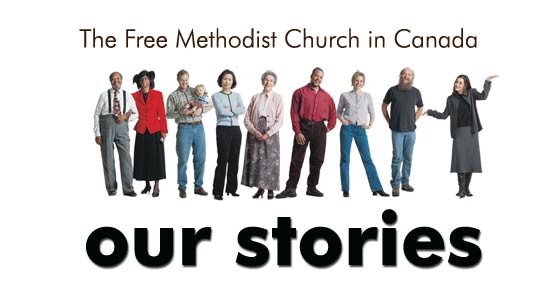The Concept
Tension was never an end in itself for Wesley. It resulted in large part from Wesley’s preference for "third alternative" solutions. This is a concept that I first learned from Albert Outler. He felt that Wesley utilized a way of "third alternative theologizing" that amounted to "a special method all its own." For Outler, understanding this method was "crucial for any really fruitful interpretation of Wesley as theologian." Wesley’s theology provides third alternatives to "all the barren polarities generated by centuries of polemic."
Third alternative refers to Wesley’s refusal to see competing claims as the only options. Neither was mere compromise a solution. Compromises are often weak and finally unacceptable to everyone. Compromise usually postpones the real issue. Rather the task is to create a new option. This third alternative seeks to preserve, not weaken, the key strengths. At the same time it endeavors to avoid weaknesses of the competing positions.
Leadership in the Wesleyan Spirit, p. 85
I grew up liking many kinds of music, from the folk music of Peter Paul and Mary and the Kingston Trio, to the Beatles rock and roll, and on to classical, like Richard Strauss’s Tone Poem, "Death and Transfiguration." I refused to choose one style over the other, while some "purist" friends felt I was a "sell out." Elton John, however, showed it was possible to be trained at The Juilliard School of Music and create a most compelling sound for lovers of rock. It was new.
Integration, Not Compromise
…one should resist the temptation to mistake compromise for the true integration of a third alternative. The greatest deficiency of compromise is that there is no real change in one’s own thinking. Integration, on the other hand, guards against what Mill called the "deep slumber of a decided opinion." …"There is nothing so dangerous as an answer—if it is the only one you have!" One of the great advantages of integration is the personal change that takes place. We come to understand and appreciate the ideas and values of others. Partisanship, says Follett, "starves our nature." We are so intent on our own values that other values are starved out of us.
Leadership in the Wesleyan Spirit, p. 87
While I was a practicing social worker it was common for colleagues to inquire of each other "what type" we were practicing. They wanted to know if your approach was family systems, narrative therapy, or solution-focused, among other. Most would respond by saying their approach was "integrated." That usually wasn’t true because integration meant you knew the theory and had practiced enough in each to know the difference. The truth was that we were more eclectic, taking bits from each pragmatically, rather than integrated. Those that were integrated had many years experience and clinical bumps and bruises to show for it.
Finding God’s New Creation
Leaders in the Wesleyan spirit neither fear nor glamorize tension. They understand that tension is the natural arena for leadership. The task of leaders is not to resolve the tension through victory for one side or through compromise. Leaders see the tension interspersed throughout with the presence and wisdom of God, just waiting for God’s new creation to emerge. Often a third alternative becomes the "new thing" God is doing in our midst.
Leadership in the Wesleyan Spirit, p. 92
Leaders in the Wesleyan spirit neither fear nor glamorize tension. They understand that tension is the natural arena for leadership. The task of leaders is not to resolve the tension through victory for one side or through compromise. Leaders see the tension interspersed throughout with the presence and wisdom of God, just waiting for God’s new creation to emerge. Often a third alternative becomes the "new thing" God is doing in our midst.
Leadership in the Wesleyan Spirit, p. 92
Alan Retzman is the Director of Personnel for The Free Methodist Church in Canada


No comments:
Post a Comment